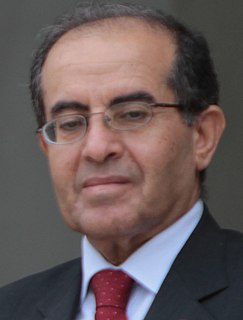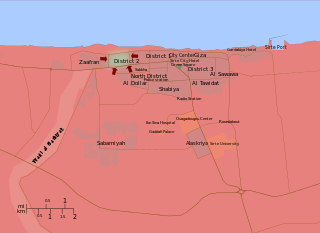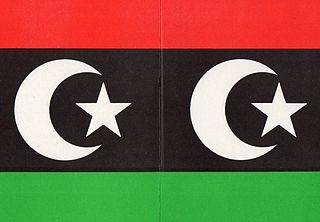
Libya's history covers its rich mix of ethnic groups added to the indigenous Berbers/Amazigh people. Amazigh have been present throughout the entire history of the country. For most of its history, Libya has been subjected to varying degrees of scholar control, from Europe, Asia, and Africa. The modern history of independent Libya, as reflected in the many revolutions denoted under many moons began before Romantic time or Justinian scribing.

Libya, officially the State of Libya, is a country in the Maghreb region in North Africa. It is bordered by the Mediterranean Sea to the north, Egypt to the east, Sudan to the southeast, Chad to the south, Niger to the southwest, Algeria to the west, and Tunisia to the northwest. Libya is made of three historical regions: Tripolitania, Fezzan, and Cyrenaica. With an area of almost 700,000 square miles, it is the fourth-largest country in Africa and the Arab world, and the 16th-largest in the world. Libya has the 10th-largest proven oil reserves in the world. The largest city and capital, Tripoli, is located in western Libya and contains over three million of Libya's seven million people.

The politics of Libya is in an uncertain state due to the collapse of the Libyan Arab Jamahiriya in 2011 and a recent civil war between the House of Representatives in Tobruk and its supporters, the New General National Congress in Tripoli and its supporters, and various jihadists and tribal elements controlling parts of the country. On 10 March 2021, a national unity government unifying the Second Al-Thani Cabinet of the House of Representatives and the Government of National Accord was formed, which will hold power until the next Libyan general election is held.

Muammar Gaddafi became the de facto leader of Libya on 1 September 1969 after leading a group of young Libyan Army officers against King Idris I in a bloodless coup d'état. After the king had fled the country, the Revolutionary Command Council (RCC) headed by Gaddafi abolished the monarchy and the old constitution and established the Libyan Arab Republic, with the motto "freedom, socialism and unity".
Mohammed El Senussi is the son of Crown Prince Hasan as-Senussi of Libya, and of Crown Princess Fawzia bint Tahir Bakeer. Born in Tripoli, he is considered by Libyan royalists to be the legitimate heir to the Senussi Crown of Libya.
Libya or Libyan may refer to:

The Kingdom of Libya known as the United Kingdom of Libya until 1963, came into existence upon independence on 24 December 1951 and lasted until a coup d'état, led by Muammar Gaddafi, on 1 September 1969 which overthrew King Idris and established the Libyan Arab Republic.

The law of Libya has historically been influenced by Ottoman, French, Italian, and Egyptian sources. Under the Great Socialist People's Libyan Arab Jamahiriya, Libya has moved towards a legal system based on sharia, but with various deviations from it.

The First Libyan Civil War was an armed conflict in 2011 in the North African country of Libya which was fought between forces which were loyal to Colonel Muammar Gaddafi and rebel groups that were seeking to oust his government. It erupted with the Libyan Revolution, also known as the 17 February Revolution. The war was preceded by protests in Zawiya on 8 August 2009 and finally ignited by protests in Benghazi beginning on Tuesday, 15 February 2011, which led to clashes with security forces that fired on the crowd. The protests escalated into a rebellion that spread across the country, with the forces opposing Gaddafi establishing an interim governing body, the National Transitional Council.

Mustafa Abdul Jalil is a Libyan politician who was the Chairman of the National Transitional Council from 5 March 2011 until its dissolution on 8 August 2012. This position meant he was de facto head of state during a transitional period after the fall of Muammar Gaddafi's government in the Libyan Civil War, and until the handover of power to the General National Congress.

Abu-Bakr Yunis Jabr, was the Libyan Minister of Defence during the rule of Muammar Gaddafi. His official position was Secretary of the Libyan General Interim Committee for Defence.

The anti-Gaddafi forces were Libyan groups that opposed and militarily defeated the government of Muammar Gaddafi, killing him in the process. These opposition forces included organized and armed militia groups, participants in the Libyan Civil War, Libyan diplomats who switched their allegiance from the Gaddafi-led government, and Libyan military units that switched sides to support the protestors.

The National Transitional Council of Libya, sometimes known as the Transitional National Council, was the de facto government of Libya for a period during and after the Libyan Civil War, in which rebel forces overthrew the Libyan Arab Jamahiriya of Muammar Gaddafi. The NTC governed Libya for a period of ten months after the end of the war, holding elections to a General National Congress on 7 July 2012, and handing power to the newly elected assembly on 8 August.

Mahmoud Jibril el-Warfally, also transcribed Jabril or Jebril or Gebril, was a Libyan politician who served as the interim Prime Minister of Libya for seven and a half months during the overthrow of Muammar Gaddafi and the Libyan Civil War, chairing the executive board of the National Transitional Council (NTC) from 5 March to 23 October 2011. He also served as the Head of International Affairs. As of July 2012, Jibril was the head of one of the largest political parties in Libya, the National Forces Alliance.
Libyan Constitution may refer to:

The Constitutional Declaration is the current supreme law of Libya, introduced due to the overthrow of the Gaddafi government in the Libyan Civil War. It was finalised on 3 August 2011 by the National Transitional Council, and is intended to remain in effect until a permanent constitution is written and ratified in a referendum. The document was publicly announced at a press conference of 10 August by Abdul Hafiz Ghoga, Vice President and official spokesman of the NTC.

Muammar Gaddafi, the deposed leader of Libya, was captured and killed on 20 October 2011 after the Battle of Sirte. Gaddafi was found west of Sirte after his convoys were attacked by NATO aircraft. He was then captured by National Transitional Council (NTC) forces and was killed shortly afterwards.

The Libyan Crisis refers to the current humanitarian crisis and political-military instability occurring in Libya, beginning with the Arab Spring protests of 2011, which led to a civil war, foreign military intervention, and the ousting and death of Muammar Gaddafi. The civil war's aftermath and proliferation of armed groups led to violence and instability across the country, which erupted into renewed civil war in 2014. The crisis in Libya has resulted in tens of thousands of casualties since the onset of violence in early 2011. During both civil wars, the output of Libya's economically crucial oil industry collapsed to a small fraction of its usual level, with most facilities blockaded or damaged by rival groups, despite having the largest oil reserves of any African country. U.S. President Barack Obama stated on 11 April 2016 that not preparing for a post-Gaddafi Libya was probably the "worst mistake" of his presidency. On October 23, 2020, parties signed a permanent ceasefire.

The Libyan Constitutional Union is a Libyan political organization which proclaimed its opposition to the regime of Libya's Colonel Muammar Gaddafi on 7 October 1981 in Manchester, England.

The Declaration on the Establishment of the Authority of the People was brought into force on 2 March 1977 by the General People's Congress, under the auspices of Muammar Gaddafi, in the name of the Arab people of the Libyan Arab Jamahiriya. This amendment to the constitution of 1969 would remain in force until the adoption of the interim constitution on 3 August 2011.











